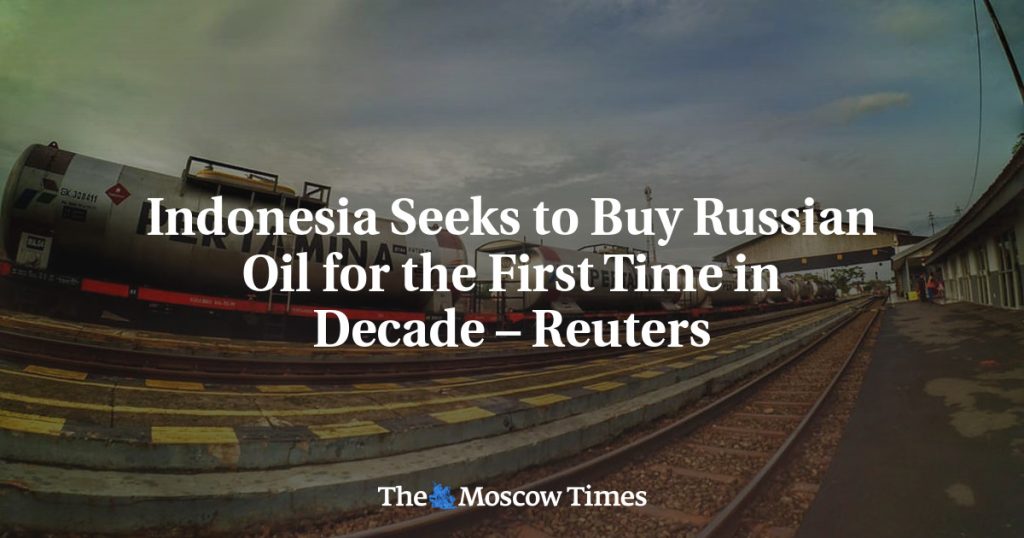Indonesia’s state-owned oil and natural gas corporation, Pertamina, is considering purchasing Russian oil for the first time in over a decade. This decision comes following Indonesia’s withdrawal from buying Russian oil due to the full-scale invasion of Ukraine in February 2022. Despite not joining in Western sanctions against Moscow, Indonesia is now looking to add two Russian oil grades – Urals and Sokol – to its tender lists for purchase in September. Pertamina last purchased Sokol oil and Eastern Siberia-Pacific Ocean blend from Russia more than 10 years ago, and the results of the recent tenders for Russian oil are yet to be announced.
Months after the Russian invasion of Ukraine, Indonesian President Joko Widodo expressed interest in potentially joining China and India in buying Russian oil. Moscow has been rerouting its oil exports through neutral countries since the EU embargoed seaborne Russian oil deliveries and introduced a price cap on Russian crude oil in coordination with the G7. Pertamina may only proceed with purchasing Russian oil if it is sold under the price cap regulation, as stated by an anonymous source familiar with the company’s plans. In 2022, Pertamina mentioned reviewing the risks of buying Russian oil after being offered crude at a 30% discount.
Indonesia’s potential decision to purchase Russian oil has been met with mixed reactions, especially in light of the international community’s response to Russia’s actions in Ukraine. Despite Indonesia not implementing sanctions against Moscow, the move to acquire Russian oil has sparked discussions about geopolitical implications and the ethical considerations of such a decision. The global oil market is closely watching Indonesia’s actions as it navigates its position in the midst of ongoing conflicts and geopolitical tensions.
The resurgence of interest in purchasing Russian oil highlights the complex interplay between economic factors, political considerations, and global responses to conflict. As Indonesia, a significant player in Southeast Asia’s economy, explores the possibility of buying Russian oil, it faces scrutiny from various stakeholders and observers. The decision-making process involves weighing the potential benefits of acquiring Russian oil against the ethical implications of engaging with a country involved in international disputes, particularly in the context of the ongoing conflict in Ukraine.
Pertamina’s move to potentially purchase Russian oil reflects the evolving dynamics of the global energy market and the strategic decisions made by countries as they navigate geopolitical challenges. The company’s exploration of adding Russian oil grades to its tender lists signifies a shift in its purchasing strategy and a response to changing market conditions. As Pertamina awaits the results of its recent tenders for Russian oil, the implications of this decision for Indonesia’s energy security and its relationships with other countries remain significant factors to consider in the broader context of international trade and diplomacy.
In conclusion, Indonesia’s potential purchase of Russian oil marks a significant development in the country’s energy landscape and its geopolitical positioning. The decision to consider buying Russian oil after more than a decade reflects the complexities of global energy markets, political relationships, and ethical considerations in the wake of international conflicts. As Pertamina moves forward with its plans to add Russian oil grades to its purchase options, the outcome of these tenders and the subsequent implications for Indonesia’s energy sector will be closely monitored by industry analysts, policymakers, and stakeholders in the international community.


